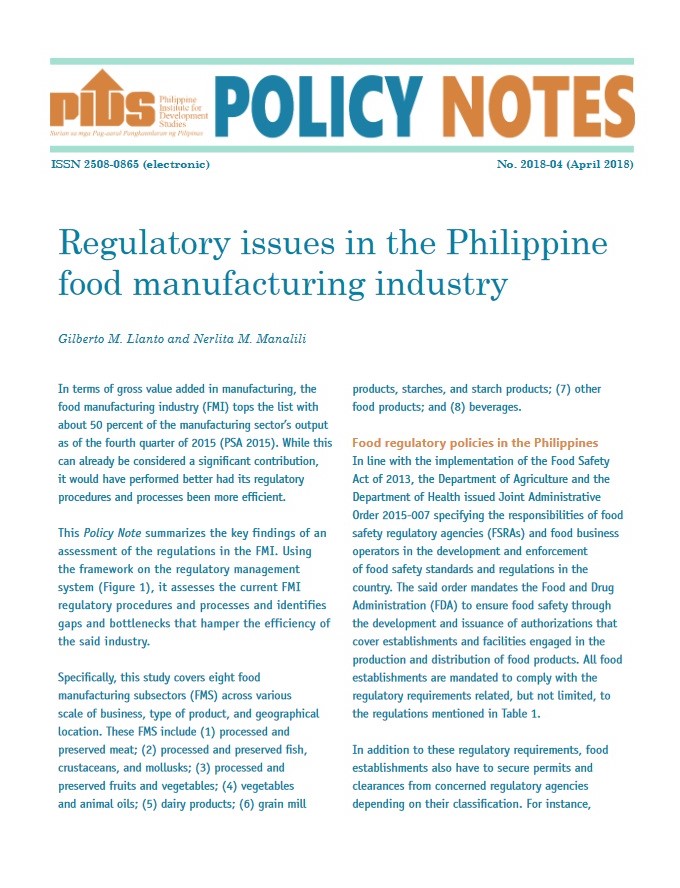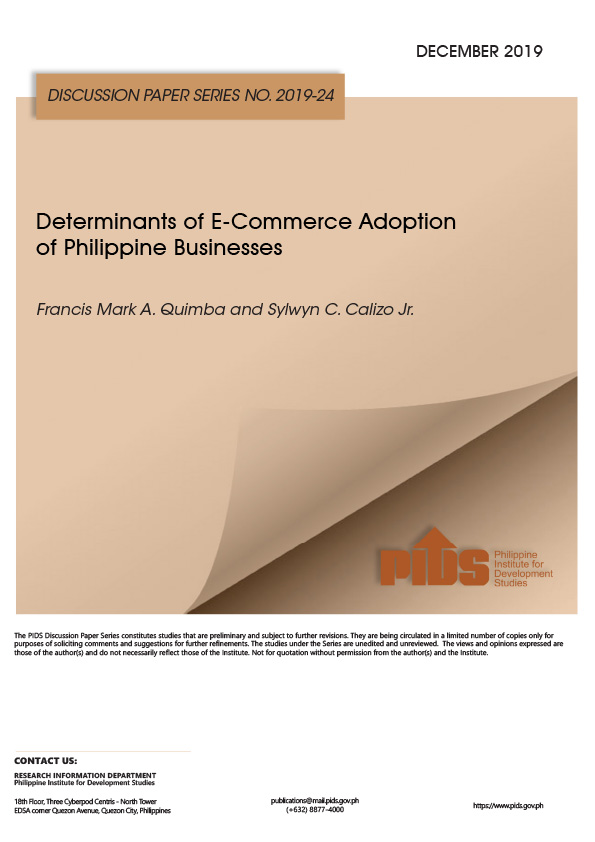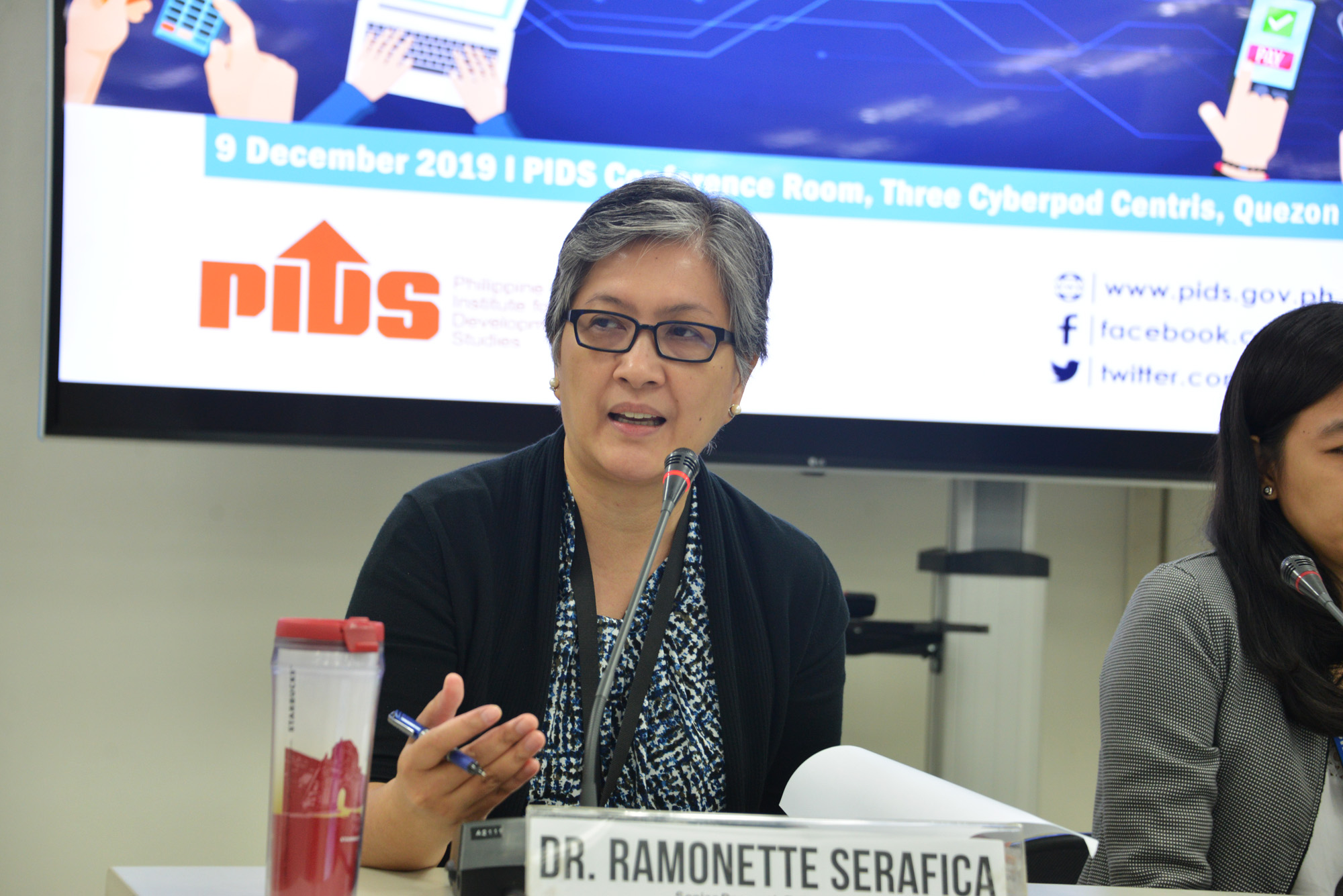Competition agencies and nongovernmental organizations across the globe celebrated World Competition Day on December 5 under the theme "Impact of Cartels on the Poor". This day coincides with the day the United Nations General Assembly passed the UN set of principles and rules on competition. Cartels are motivated by greed and the desire to reduce competition. Without competition, cartels steal and rob from the public.
In the Philippines, cement is one sector where perennial price increases have always been a complaint despite the removal of tariffs. Other competition issues include exclusive dealing in canned tuna, interconnection problems in telecommunications, and high cost of shipping. Weak competition is detrimental particularly to ordinary consumers especially small and medium businesses.
Philippine Institute for Development Studies (PIDS) President Dr. Gilbert Llanto stressed that we cannot overemphasize the need for competition policy and competition law to ensure market contestability and regulate anticompetitive business practices. Without any competition law, there is a risk that market reforms may not be enough to foster effective competition.
In June 2011, President Aquino signed EO 45 designating the Department of Justice as the country’s competition office. While the creation of the Office for Competition is an important step, the legal framework is still to be deliberated at the House of Representatives and the Senate. PIDS Vice President Rafaelita Aldaba emphasized that strong political leadership would be necessary to legislate an effective competition law. In many developing countries, implementation is the Achilles heel of competition. Hence, it is important for us to design competition law and regulations that could be effectively implemented.
Aldaba further noted that there is no one-size-fits-all policy. Taking into account the stage of our economic development, policies, institutions, and resources, a gradual but steady implementation may be the proper approach to follow. The institutional ingredients that make ambitious competition systems feasible in developed countries hardly exist in a developing country setting such as ours and will only take time to build. Both Llanto and Aldaba agreed that to get there, we need to continue building our capacity and to focus on information dissemination and education, such as case studies of good practices. For our advocacy work, we should focus on the removal of regulatory barriers to services such as allowing foreign participation by relaxing the 60-40 percent rule in ports and shipping. For our enforcement agenda, we need to be selective and to pick cases that would generate positive response from the public to build the competition body’s credibility.
Currently, PIDS, in collaboration with the Customer Unity and Trust Society (CUTS) International of India, is implementing the Competition Reforms in Key Markets for Enhancing Social and Economic Welfare Project. This project aims to assess the state of competition in the rice and passenger transport sectors and quantify the competition benefits for both consumers and producers arising from reforms undertaken in these sectors. Dr. Llanto stressed the need to ensure that consumers realize the potential benefits from an effectively implemented competition regime. This project is one way of making people more aware of the benefits from competition and the need to legislate an effective competition law to accompany market-oriented reforms.
In the Philippines, cement is one sector where perennial price increases have always been a complaint despite the removal of tariffs. Other competition issues include exclusive dealing in canned tuna, interconnection problems in telecommunications, and high cost of shipping. Weak competition is detrimental particularly to ordinary consumers especially small and medium businesses.
Philippine Institute for Development Studies (PIDS) President Dr. Gilbert Llanto stressed that we cannot overemphasize the need for competition policy and competition law to ensure market contestability and regulate anticompetitive business practices. Without any competition law, there is a risk that market reforms may not be enough to foster effective competition.
In June 2011, President Aquino signed EO 45 designating the Department of Justice as the country’s competition office. While the creation of the Office for Competition is an important step, the legal framework is still to be deliberated at the House of Representatives and the Senate. PIDS Vice President Rafaelita Aldaba emphasized that strong political leadership would be necessary to legislate an effective competition law. In many developing countries, implementation is the Achilles heel of competition. Hence, it is important for us to design competition law and regulations that could be effectively implemented.
Aldaba further noted that there is no one-size-fits-all policy. Taking into account the stage of our economic development, policies, institutions, and resources, a gradual but steady implementation may be the proper approach to follow. The institutional ingredients that make ambitious competition systems feasible in developed countries hardly exist in a developing country setting such as ours and will only take time to build. Both Llanto and Aldaba agreed that to get there, we need to continue building our capacity and to focus on information dissemination and education, such as case studies of good practices. For our advocacy work, we should focus on the removal of regulatory barriers to services such as allowing foreign participation by relaxing the 60-40 percent rule in ports and shipping. For our enforcement agenda, we need to be selective and to pick cases that would generate positive response from the public to build the competition body’s credibility.
Currently, PIDS, in collaboration with the Customer Unity and Trust Society (CUTS) International of India, is implementing the Competition Reforms in Key Markets for Enhancing Social and Economic Welfare Project. This project aims to assess the state of competition in the rice and passenger transport sectors and quantify the competition benefits for both consumers and producers arising from reforms undertaken in these sectors. Dr. Llanto stressed the need to ensure that consumers realize the potential benefits from an effectively implemented competition regime. This project is one way of making people more aware of the benefits from competition and the need to legislate an effective competition law to accompany market-oriented reforms.












